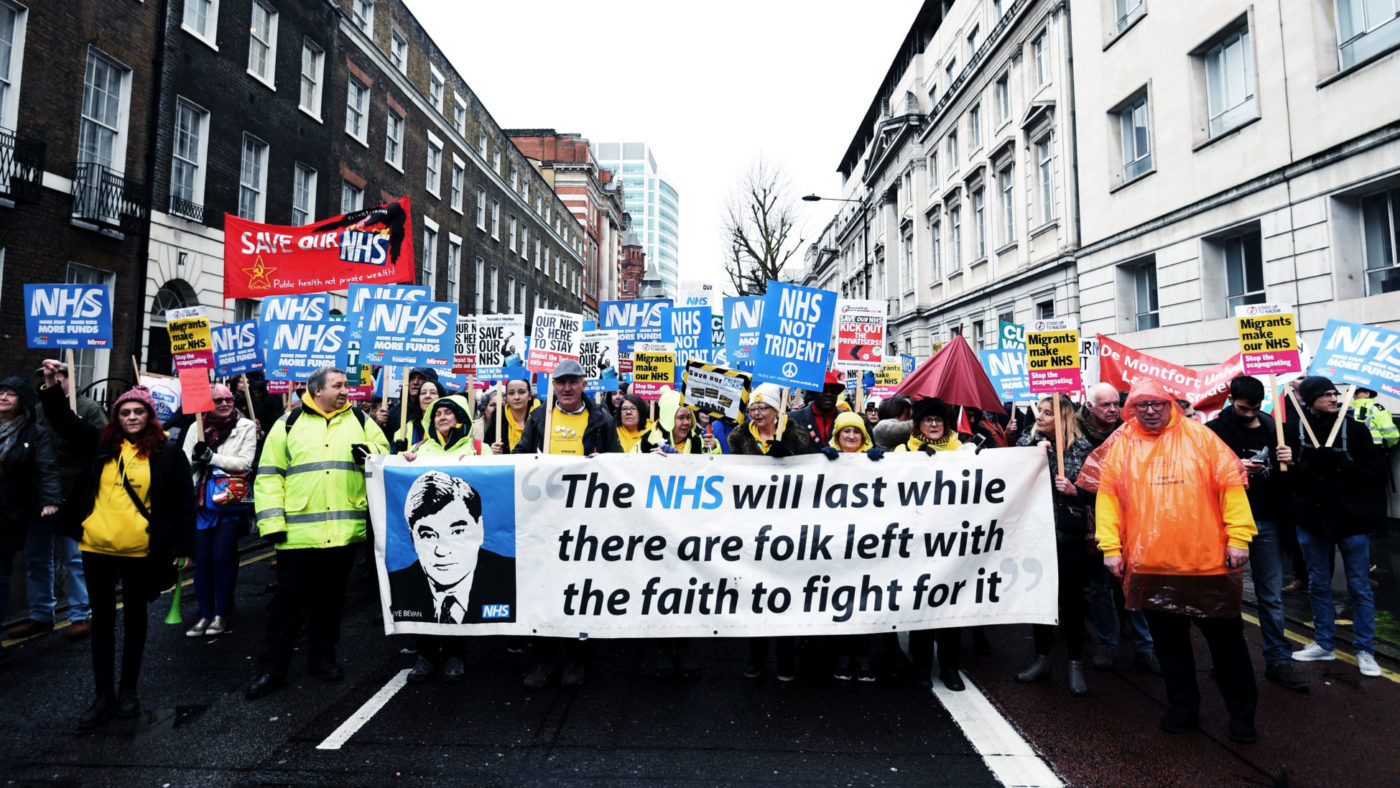In a blow to the “24 Hours to Save our NHS” brigade, it turns out the proportion of the health service budget spent on non-NHS providers has actually gone down in the last year. In other words, the idea the NHS is hurtling towards privatisation is nothing more than a myth.
Research for the Financial Times from the Nuffield Trust’s John Appleby shows that the NHS spent £13.1bn on care from non-NHS providers, equivalent to just under 11 per cent of the entire budget.
We can pick apart the figures a bit – some of the fall in private provider spent is a result of new classifications, for instance – but the overall picture is one of flat spending.
Bear in mind as well that non-NHS does not just mean Evil Corporations – about a third of that £13.1bn was spent by voluntary organisations and local authorities. So the total spend that went to private companies comes to under 7.5 per cent of the NHS budget. Contrary to the overblown warnings you hear from the Labour frontbench and various NHS campaign groups, that figure hardly reveals an organisation on the brink of extinction.
Even if the proportion of private care were increasing, would that necessarily be cause for alarm?
Appleby doesn’t seem to think so.
As an economist, the thing I care about and I think other people should care about is not, ideologically, ‘who owns the means of production?’ but ‘is owning the means of production important in terms of the volume and quality of patient care and the efficiency with which it’s delivered?
He is right. We should not let ideological abstractions get in the way of delivering high-quality healthcare. That cuts both ways, of course. If the state actually were producing a gold-star service at a low cost, those of us more inclined to market solutions should not put ideology before what works.
Sadly, though, the debate that surrounds the NHS is defined by a dogmatic refusal to learn from other countries and consider alternative ways of doing things. For all the “envy of the world” hyperbole, the average Swiss, French, Dutch or German patient is not looking green-eyed across the channel when it comes to their medical care.
Try suggesting that state-delivered health might be worth re-examining and the standard retort is that you’re in favour of a US-style system. Why? All over Europe the private sector is involved in health systems which achieve better care outcomes than the NHS.
Unfortunately, the research published in the FT today is unlikely to calm the NHS alarmists. After all, as Kristian Niemietz has pointed out on CapX, the post-2010 hysteria is part of a rich tapestry of guff that has been around for many decades. Privatisation always looms large on the horizon, with patients only ever weeks away from having to present their credit card to get access to any care at all.
It is difficult to take such melodramatic claims seriously, but it would be a mistake not to engage with the alarmists, and present them with the facts outlined by Appleby: even if you don’t like the private sector, there is simply no evidence to suggest that it is “taking over” the health service.
We ought also to hold the authors of this kind of cant to closer scrutiny. This classic of the genre written in 2014 by the then deputy chair of the BMA council, Kailash Shand, is a case in point:
I believe it will be a completely different healthcare system in five years time – one which will be much worse in terms of access, equity, health outcomes and cost.
We are inexorably moving toward a system ruled by bogus choice, competition, market forces and diversity of suppliers. By opening every NHS corner to “any qualified provider”, the whole service can be taken over by private companies, with a few token charities and mutuals. NHS hospitals, faced with the consequences of cherry-picking by private consortia, risk bankruptcy when left to deal only with complex cases.
Well, we’ve got until next year for the complete private sector take-over. Only the remaining 90 per cent of the NHS to go. One more heave…


